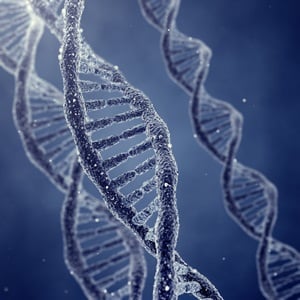
Some obese people have a genetic mutation that seems to ramp up the reward centres in their brains when they see food, researchers report.
Strategies to prevent overeating
Gaining a better understanding of how this mutation triggers feelings of pleasure and gratification at the sight of high-calorie foods like chocolate could help improve strategies designed to prevent overeating, the scientists suggested.
More than one-third of US adults are obese. Obesity is typically caused by a combination of overeating, a lack of physical activity and genetics. The most common genetic cause of obesity is a mutation in the melanocortin 4 receptor (MC4R) gene, the British researchers explained.
In conducting their study, published in the Journal of Clinical Endocrinology & Metabolism, the scientists compared eight people who were obese and had the MC4R gene mutation with 10 people who were overweight or obese who did not have the gene mutation, and eight people who were a normal weight.
Read: Is being overweight or obese dangerous?
Using functional MRI scans, the study authors observed how pictures of tempting foods, such as chocolate cake, activated the reward centres of the participants' brains. Their response to photos of appetising foods was then compared to the effect of pictures of bland foods, such as rice or broccoli, and objects like staplers.
Brain's reward centres light up
Surprisingly, participants who were the same age and weight had different responses to pictures of appetising foods, the researchers found. The brain scans revealed that obese people with the genetic mutation and participants who were a normal weight had similar heightened activity in the reward centres of their brain. Meanwhile, the reward centres in the obese and overweight people who did not have the genetic mutation were underactive.
Read: Inactivity may explain obesity epidemic
"The brain's reward centres light up when people with the mutation and normal weight people viewed pictures of appetising foods. But overweight people without the mutation did not have the same level of response," lead researcher Dr. Agatha van der Klaauw, of the Wellcome Trust-MRC Institute of Metabolic Science at Addenbrooke's Hospital in Cambridge, England, said in an Endocrine Society news release.
"For the first time, we are seeing that the MC4R pathway is involved in the brain's response to food cues and its underactivity in some overweight people. Understanding this pathway may help in developing interventions to limit the overconsumption of highly palatable foods that can lead to weight gain," she explained.
Read more:
Can extreme obesity be considered a disability?
Obesity may promote survival after heart procedures
Image: Genetic mutation from Shutterstock




 Publications
Publications
 Partners
Partners










